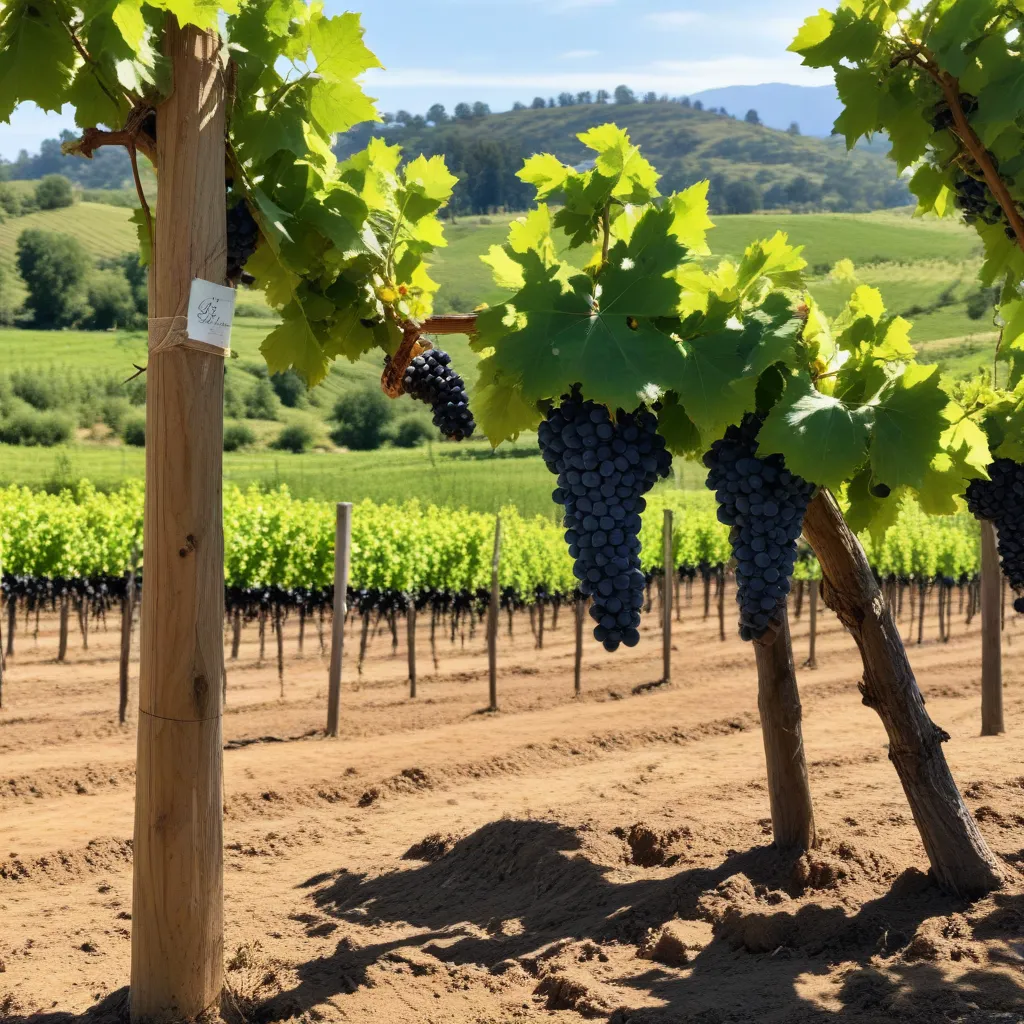
Nestled amidst the rolling hills and lush landscapes of wine country lies a harmonious fusion of art, nature, and winemaking – the essence of sustainable winegrowing. At the forefront of this movement are visionary vintners who have embraced a holistic approach to cultivating exceptional wines while preserving the delicate balance of their ecosystems.
One such estate, Donum Estate in Carneros, Sonoma, exemplifies this artful integration of viticulture and environmental stewardship. Renowned for its outstanding Pinot Noir and Chardonnay, Donum’s commitment to sustainability is evident in every aspect of its operations. “Our vision is to create wines that truly reflect the unique terroir of the region and the potential of the land,” says Dan Fishman, the Vice President of Vineyards and Winery. “That means nurturing the land, respecting the natural cycles, and allowing the grapes to express their true character.”
Sustainable Viticulture Practices
Donum’s sustainable approach is certified organic, with a focus on biodynamic farming and regenerative techniques. This philosophy centers around minimal intervention, allowing the grapes to showcase their distinctive qualities. “We believe the unique characteristics of the land should be reflected in the wine,” Fishman explains. “The vineyard is managed to nurture the soil and support the overall health of the ecosystem.”
At Donum, this translates to the use of native yeasts, small-lot fermentation, and a commitment to composting and cover cropping. The winery has also recently introduced sheep to the vineyards, leveraging their grazing abilities to naturally manage weed growth and improve soil fertility. A recent effort to conserve water reduced irrigation by 50 percent, further underscoring Donum’s dedication to sustainable resource management.
Ecological Considerations in Winegrowing
Sustainable winegrowing extends beyond the vineyard, encompassing a deep respect for the surrounding natural environment. Donum’s estate is teeming with biodiversity, providing vital habitats for a wide range of flora and fauna. “We strive to create a thriving ecosystem that supports all the elements of the land,” Fishman notes. “From maintaining wildlife corridors to enhancing soil health, every decision we make is guided by a holistic, long-term vision.”
Water conservation is another crucial aspect of Donum’s sustainability efforts. By implementing precision irrigation techniques and minimizing water usage, the winery is able to safeguard this precious resource while ensuring the health and resilience of its vineyards. “It’s not just about the grapes,” Fishman emphasizes. “It’s about preserving the entire ecosystem for generations to come.”
Winemaking and Sustainability
Sustainability permeates every stage of the winemaking process at Donum. From the fermentation techniques to the winery’s energy-efficient operations, the team is committed to reducing its environmental impact. “We use small concrete and stainless-steel tanks to minimize our carbon footprint and ensure the purity of the fruit,” Fishman explains. “And we’ve implemented a rigorous recycling and waste reduction program to keep our operations as eco-friendly as possible.”
Renewable energy sources, such as solar panels, also play a crucial role in Donum’s sustainable approach. “By harnessing the power of the sun, we’re able to significantly reduce our reliance on fossil fuels and contribute to a more sustainable future,” Fishman states.
Vineyard Landscapes and Aesthetics
Donum’s commitment to sustainability extends beyond the practical aspects of winegrowing – it’s also manifested in the estate’s breathtaking natural beauty. The vineyards are seamlessly integrated with the surrounding landscape, creating a sense of harmony and belonging. “We’ve consciously designed our vineyards to complement the natural ecosystems, preserving the integrity of the viewshed and providing a serene, immersive experience for our visitors,” Fishman explains.
The winery’s collaboration with acclaimed artists further enhances this connection between nature, art, and winemaking. Strategically placed sculptures throughout the estate invite guests to engage with the landscape on a deeper level, blurring the lines between the cultivated and the wild.
Sustainability Certification and Standards
Donum’s commitment to sustainable winegrowing is not only evident in its practices but also recognized through various third-party certifications. The winery is certified organic and is currently undergoing the process to become a certified regenerative vineyard, a testament to its dedication to environmental stewardship.
“Sustainable winegrowing is not just a trend – it’s a fundamental shift in the way we approach viticulture,” Fishman emphasizes. “By embracing these principles, we’re not only crafting exceptional wines but also ensuring the long-term viability of our vineyards and the surrounding ecosystems.”
Economic Aspects of Sustainable Winegrowing
The economic benefits of sustainable winegrowing are increasingly evident, as consumers seek out eco-friendly, terroir-driven wines. Donum’s commitment to sustainability has not only enhanced the quality and uniqueness of its wines but also resonated with a growing market of conscious consumers. “Our focus on sustainability has not only been good for the land but also for our business,” Fishman affirms. “We’ve expanded to 28 states and eight international markets, demonstrating the power of our vision.”
Community Engagement and Outreach
Donum’s sustainable approach extends beyond the boundaries of its own estate, as the winery actively engages with the local community and educates visitors about the importance of eco-friendly viticulture. “We believe that sustainable winegrowing is a shared responsibility,” Fishman says. “By collaborating with local stakeholders and hosting events that highlight our sustainable practices, we’re able to foster a deeper understanding and appreciation for the art of winegrowing.”
As the wine industry continues to evolve, estates like Donum stand as beacons of hope, showcasing how sustainable viticulture, innovative winemaking, and a deep reverence for the land can come together to create exceptional wines that truly reflect the essence of their terroir. Through their visionary approach, these winegrowers are not only crafting world-class wines but also preserving the natural beauty and ecological balance that makes wine country so captivating.
To experience the confluence of art, nature, and sustainable winemaking, plan your visit to Wine Garden Inn – where the vineyard visions of Donum Estate and other pioneering estates come to life.
